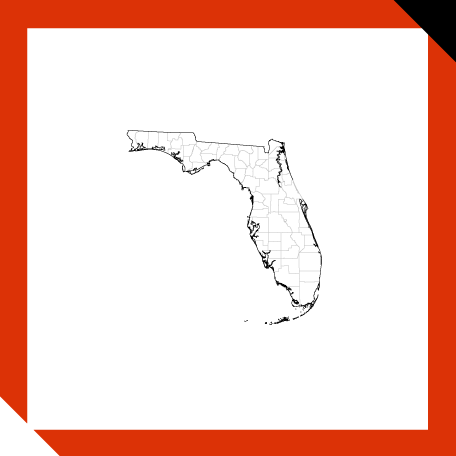Political Report
2018 Election Preview: Governor of Florida
Andrew Gillum and Ron DeSantis divided on criminal justice reform

Andrew Gillum and Ron DeSantis are divided on criminal justice reform
This article is part of the Political Report’s coverage of the 2018 elections.
Tallahassee Mayor Andrew Gillum, who won the Aug. 30 Democratic primary, has outlined a far-reaching criminal justice reform agenda, recently profiled by the Florida Times-Union’s Andrew Pantazi. He advocates legalizing marijuana for recreational use, eliminating private prisons, reforming cash bail reform in a “more aggressive” manner than New Jersey’s reform, and repealing Florida’s “Stand Your Ground” law. Strikingly, in proposing to overhaul the sentencing code and enable judges to sidestep mandatory minimums, Gillum does not limit such reforms to low-level or “nonviolent” offenses, as politicians often do.
He also says that he would suspend the death penalty by not signing any execution warrants “until we can come up with some answers as to why it is there seems to be in this state a racial bias when it comes to the application of the death penalty.”
Gillum faces U.S. Representative Ron DeSantis, a former prosecutor who won the GOP primary with President Trump’s support. DeSantis has avoided outlining a precise platform on criminal justice, but his record and rhetoric make for a stark contrast with Gillum.
DeSantis has used the familiar trope of decrying judicial decisions favorable to defendants as “technicalities,” a term he employed at a campaign rally to denounce a ruling by the state Supreme Court that required death sentences to be handed by unanimous juries. “I have a tree and a rope in my backyard. Bring back the hanging tree!” yelled a supporter at the rally upon hearing DeSantis’s comments. DeSantis opposes legalized marijuana and reportedly opposes Amendment 4, the November referendum to restore the voting rights of people who complete the terms of a felony conviction.
Adding to the stakes is the legal battle over whether departing GOP governor Rick Scott has the authority to appoint replacements for the three justices whose terms expire in January, right when Scott’s term expires, or whether the new governor ought to make the appointments. The balance of Florida’s judiciary hangs on November’s election coupled with this legal battle.
We previewed Florida’s gubernatorial primary on Aug. 23, 2018.
